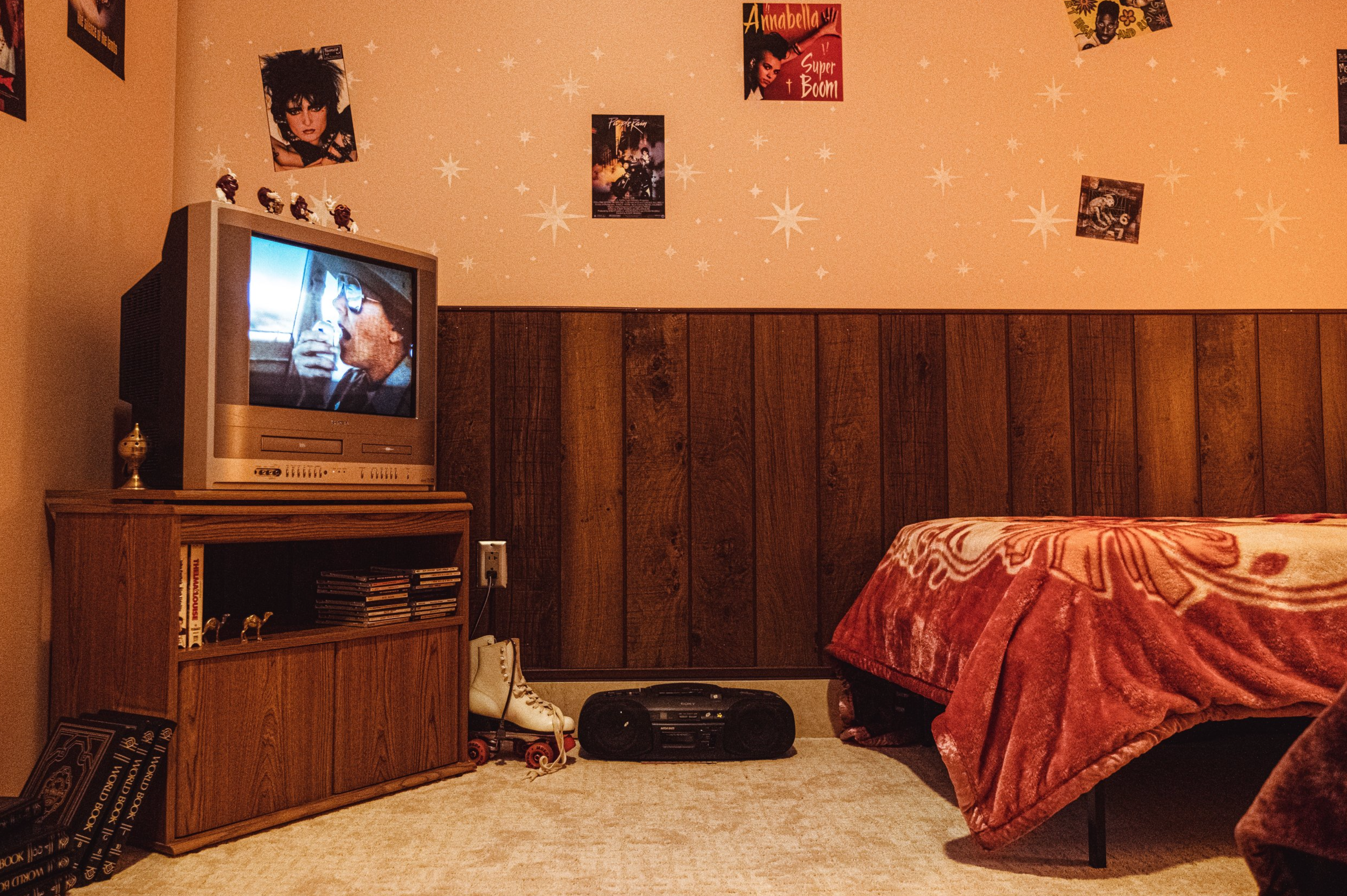Yasmine Nasser Diaz
for the sake of dancing in the street at Oxy Arts
Contemporary Art Review LA
November 7, 2023
LINK
YASMINE NASSER DIAZ
The notion of soft power is understood as the ability to attract and co-opt, rather than coerce. Reframing this concept within her work, Yasmine Nasser Diaz considers the covert skills that many of us begin to develop as children as we adapt to various environments. For children of immigrants, particularly those of families who have migrated from the Global South to Western societies, these skills are uniquely nuanced. Continuously traversing private to public spheres, from households of collectivist ideals to institutional and social spaces that encourage individual expression -- children quickly learn to code switch and seamlessly navigate within the disparate realities around them.
Born and raised in Chicago to Yemeni immigrant parents, Diaz and her sisters often found themselves exercising these soft powers while negotiating the polarities of their daily lives. In speaking to children of immigrants of various ethnic backgrounds, Diaz has learned that there is a common, emergent experience of being raised within tight-knit communities which often perpetuates the crystallization of a culture. In an effort to sustain an identity rooted in the homeland, a common recourse is to recreate customs and maintain perhaps stricter social norms within the migrant community. Although meant to protect and support, in some cases, they can result in contradictory messaging to children being raised in societies promoting contrasting values.
“Yemenis in America are more Yemeni than Yemenis in Yemen. Especially those that came here in the 1970s. They hold on to a Yemen that is frozen in time -- which I admire to a certain extent.”
---Sama'a Al-Hamdani, Yemeni scholar and researcher
Diaz’s first solo museum exhibition introduces a new series of silk-based fiber etchings. Intimate moments of leisure amongst familiar company are depicted in a palette of warm-hued and plush silk velvets. Photography continues as Diaz’s reference material -- sourced from her personal archives as well as those she has collected from other Yemeni-American women. In these works, Diaz reflects on the moments when these girls and young women--amongst each other and in their own spaces--are able to let their guards down and be themselves. Their privacy is the setting for another type of soft power, a reclaiming of agency.
A new component of her practice, the fiber etching process involves the application of an acidic paste which reacts to cellulose fibers (in this case rayon), allowing areas to be etched away, leaving the silk-based mesh intact. The resulting ‘burned out’ fabric, also known as devoré, was popular in the 90s, an era that Diaz continually reflects upon in her work. This fabric is moreover frequently used in a Yemeni style of dress known as a dir’. Dir’oo (plural), usually made with sheer fabrics, are worn casually at home or on special occasions. Understood as being a symbol of womanhood, this style is typically worn by married or engaged women.
In addition to the fiber etchings, Diaz presents a third iteration of the bedroom installation. Set in a 1990s mid-western home, the space reflects a fictitious narrative of two Arab-American teenage sisters. Their story can be deciphered by the objects in the space and within the pages of the diaries that adorn their bedsides. Written by author Randa Jarrar of the acclaimed coming-of-age novel, A Map of Home, the journals provide a window into the lives of the two girls. We are privy to details from the seemingly trivial concerns of a typical teenager to the more pressing and complicated challenges they are struggling with.
Adolescence and coming of age are life stages Diaz repeatedly revisits in her practice. With this work, she considers the transition from girlhood to adulthood in moments when the threshold between these stages grows increasingly thin. It is at these junctures where we seem to be continuously fluctuating back and forth, looking ahead with anticipation while simultaneously experiencing a burgeoning longing and nostalgia for childhood.
Press
-
-
Yasmine Nasser Diaz
Arab American Museum
soft powers Guided Tour + Artist Talk
Mar 31, 2022 / 6:30pm – 8pm
LINK -
Yasmine Nasser Diaz
The Abusable Past
BY SANA KHAN January 25, 2021
LINK -
Yasmine Nasser Diaz
Detroit Art Review
“Soft Powers @ Arab American National Museum”
July 19th, 2020
by Jonathan Rinck
LINK






